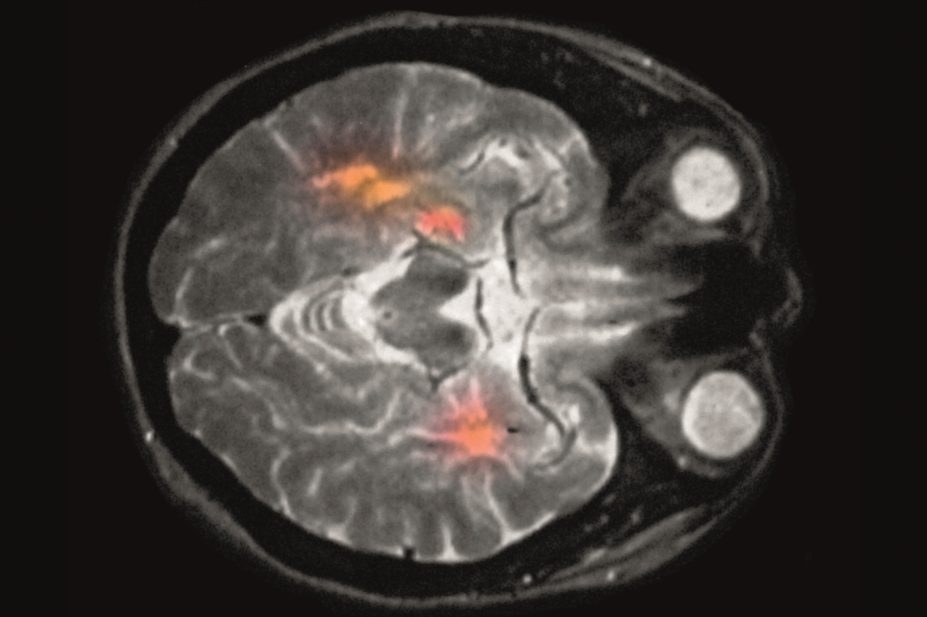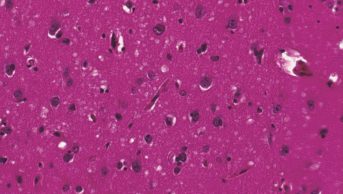
Cultura RM / Alamy Stock Photo
Researchers have discovered that starting treatment for multiple sclerosis (MS) when patients first show possible symptoms may prolong the time before the disease is clinically diagnosed.
Patients given the injectable drug interferon beta-1b when MS was first suspected were 33% less likely to be diagnosed with it when the researchers followed up 11 years later, compared to another group of patients whose MS treatment was delayed for two years, researchers found.
Reporting their findings in Neurology
[1]
(online, 10 August 2016), the researchers, led by Ludwig Kappos from the department of neurology at University Hospital Basel in Switzerland, say: “Although the delay in treatment was relatively short, several clinical outcomes favoured earlier treatment. Along with low rates of disability and disease progression in both groups, this supports the value of treatment at clinically isolated syndrome.” Clinically isolated treatment (CIS) is defined as an acute or sub-acute episode of dysfunction.
Participants in the BENEFIT trial (Betaferon/Betaseron in Newly Emerging MS for Initial Treatment) were randomly assigned to receive interferon beta-1b (early treatment) or placebo (delayed treatment).
After being clinically diagnosed with MS or after two years, patients on placebo could have treatment with interferon beta-1b, an alternative disease modifying therapy, or no treatment.
Researchers reassessed 278 of the original participants after 11 years and found that patients in the early treatment group who went on to have MS clinically confirmed had a 1,888-day gap before experiencing their first disease relapse. Patients in the delayed treatment group who received a placebo had a 931-day gap.
The authors also report that the risk of first relapse was reduced by 34.5% in the early treatment group compared with the delayed treatment cohort. The overall annual relapse rate in the early treatment group was lower than in the delayed treatment group (0.21 in the early treatment group compared to 0.26 in the delayed group). The reduction in risk of relapses was 19.1%, according to the researchers.
“[The follow-up study] provided… evidence that time to clinically definite MS was prolonged and that additional clinical measures were improved by early treatment while both groups showed a generally mild disease course,” the researchers say.
“This study adds to the literature on the optimal treatment of patients with MS by supporting and expanding the data on treatment at the earliest clinical manifestation of the disease,” they add.
An accompanying editorial[2]
says the findings confirm that early treatment is associated with an increase in the time to clinically definite MS (hazard ratio, 0.67) and a decrease in the total relapse rate over 11 years. However, it advises caution in drawing any comparisons of the course of the disease and disability accumulation in these patients with “natural history studies” because the differences may not only be down to early treatment.
“With many new therapeutic options for MS, obtaining comparable long-term outcome information on patients treated with several different agents at different points following diagnosis will be necessary to determine the best practices for managing recently diagnosed patients at what is emerging to be a critical point in their disease course,” the editorial points out.
Commenting on the findings, Janine Barnes, a neurology specialist pharmacist at NHS Dudley clinical commissioning group, says it’s a longstanding debate and that the new study only provides long-term data for 60% of the original cohort. “It is difficult to make a reasonable interpretation with that degree of loss.”
Barnes adds: “It is also important to remember that we now have many more therapeutic options to manage MS and so we will need comparable long-term outcome information on patients treated with several different agents at different stages post diagnosis before we can determine best practice for managing recently diagnosed patients, as this appears to be a critical point in their disease course.”
References
[1] Kappos L, Edan G, Freedman MS et al. The 11-year long-term follow-up study from the randomised BENEFIT CIS trial. Neurology 2016;87:1–10. doi: 10.1212/WNL.0000000000003078
[2] Healy BC & Weinshenker BG. Does early (treatment in) BENEFIT lead to late MS benefit? Neurology 2016;87:1–2. doi: 10.1212/WNL.0000000000003070


